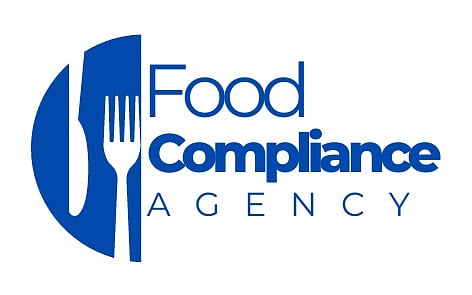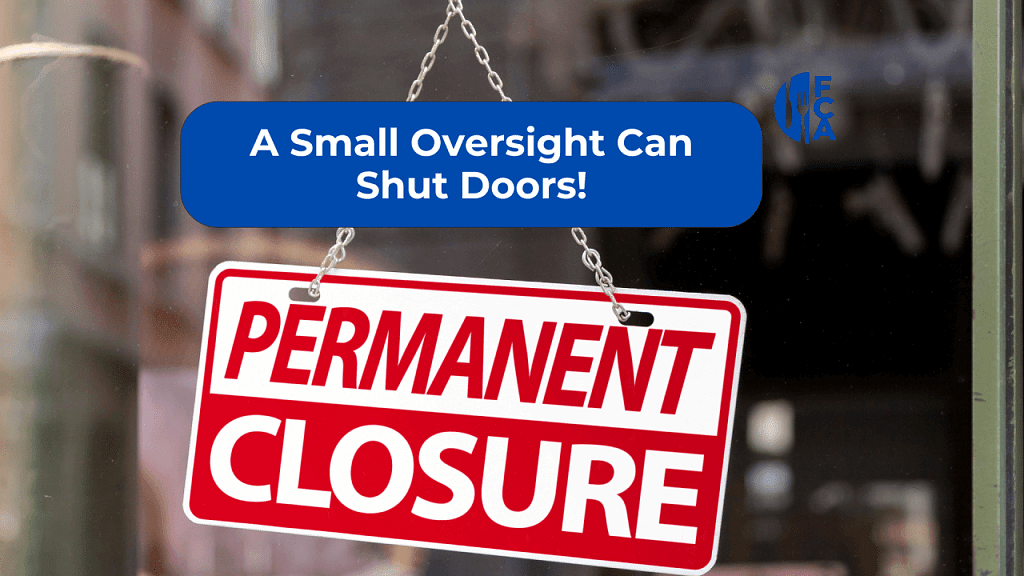Quick links
Understanding Food Safety Compliance
Demystifying Food Compliance Certificates:
Ensuring Smooth Operations: Benefits of Compliance
Taking the First Step: Food Compliance Agency Can Help

Understanding Food Safety Compliance
Why is Food Safety Compliance Important? Food safety compliance isn’t just about ticking boxes; it’s about protecting consumers and ensuring the success of your food business. Here’s why prioritizing compliance is crucial:
- Public Health: Foodborne illnesses can be devastating, causing serious health problems and even death. By adhering to food safety regulations, you minimize the risk of contamination and ensure your food is safe for consumption.
- Consumer Trust: Consumers today are increasingly concerned about food safety. Having a compliant food business builds trust and loyalty, attracting customers who value safe and healthy food options.
- Legal Requirements: Operating a food business without the necessary licenses and permits is illegal in South Africa. Non-compliance can lead to hefty fines, business closures, and even criminal charges.
- Reduced Risk & Improved Efficiency: Implementing proper food safety practices minimizes the risk of product recalls and spoilage, leading to cost savings and improved operational efficiency.
- Brand Reputation: A commitment to food safety compliance enhances your brand image and sets you apart from competitors.
Taking these factors into account, prioritizing food safety compliance
becomes a clear decision for any responsible food business owner in South Africa.
Key Regulations for Food Businesses in South Africa
South Africa has a comprehensive framework for food safety regulations enforced by the Department of Health. Here are some key regulations you need to be aware of:
- The Foodstuffs, Cosmetics and Disinfectants Act (Act 50 of 1972): This Act forms the foundation for food safety regulations in South Africa, outlining general requirements for the safety and quality of food products.
- The Regulations Governing General
- Food Hygiene (R.638 of 2009): These regulations detail specific hygiene requirements for food premises, equipment, personnel, and food handling practices.
- The South African National Standards (SANS): These standards provide detailed specifications for various aspects of food safety, including food labeling, food additives, and specific food categories.
These are just a few of the key regulations. It’s important to consult with the Department of Health or a qualified food safety professional to ensure your business is compliant with all relevant regulations.
Demystifying Food Compliance Certificates:
Demystifying Food Compliance Certificates:
Navigating the world of food compliance can feel overwhelming, especially when it comes to certificates. Let’s break down two essential certificates for South African food businesses:
What is a Certificate of Acceptability (COA)?
A Certificate of Acceptability (COA) is a permit issued by your local municipality, confirming your food business meets basic food safety and hygiene requirements. It’s essentially a license to operate, ensuring your premises, staff practices, and food handling procedures comply with regulations like R638: 2018 (General Hygiene Requirements for Food
Premises).
How to Obtain Your Food Compliance Certificates:
The process for obtaining these certificates can vary depending on your municipality. Here’s a general guideline:
- Contact your local Department of Environmental Health: They will provide specific application forms and information on required documentation.
- Prepare the necessary documents: This may include a business plan, layout plans of your premises, food safety training certificates for staff, and hazard analysis documents.
- Schedule an inspection: A health inspector will visit your premises to
- assess compliance with regulations.
- Pay applicable fees: Once your business meets all requirements, you’ll be issued the COA and Business Trading License.
Getting Help with Food Compliance Certificates:
The process can be complex, but you don’t have to go it alone. Food Compliance agencies like ours can assist you with:
- Understanding specific regulations for your business type.
- Completing application forms and gathering necessary documentation.
- Preparing for health inspections and ensuring compliance.
- Saving you time and ensuring a smooth application process.
By partnering with a food compliance agency, you can focus on running your business while we handle the complexities of obtaining the necessary certificates.
Ensuring Smooth Operations: Benefits of Compliance
Food safety compliance isn’t just about following the rules; it’s a strategic investment in the smooth operation and long-term success of your food business. Here’s how prioritizing compliance brings significant benefits:
- Reduced Risk and Improved Public Trust:
By implementing proper food safety practices, you minimize the risk of foodborne illnesses and product recalls. This not only protects your customers but also builds trust and loyalty. Consumers are increasingly health-conscious and value businesses committed to safe food handling.
- Streamlined Operations and Efficiency Gains:
Following well-defined food safety procedures creates a structured and efficient work environment. Standardized practices minimize confusion, reduce waste, and ensure consistent product quality. This translates to cost savings, improved productivity, and a smoother overall operation.
- Building a Strong Brand Reputation:
In today’s competitive food industry, a commitment to food safety compliance sets your business apart. Consumers actively seek brands they can trust. By showcasing your compliance with regulations, you build brand credibility and enhance your reputation for quality and safety.
A strong brand reputation attracts new customers, fosters customer loyalty, and ultimately drives sales growth.
Investing in compliance is an investment in your business’s future. It allows you to operate with confidence, minimize risks, and build a successful food brand that thrives in the marketplace.
Taking the First Step: Food Compliance Agency Can Help
Taking the First Step: Food Compliance Agency Can Help
Obtaining your food compliance certificates doesn’t have to be a daunting task. Food Compliance Agency is here to guide you through the process every step of the way:
Expert Guidance Through the Application Process:
Our team of experienced professionals has a deep understanding of South African food safety regulations and licensing procedures. We can explain complex
regulations in a clear and concise manner, ensuring you fully understand the requirements for your specific business type.
Simplifying Paperwork and Minimizing Hassle:
We’ll help you navigate the application forms, gather the necessary documentation, and ensure everything is completed accurately and efficiently. We handle the communication with your local municipality, saving you valuable time and minimizing the administrative burden.
Free Consultation and Competitive Rates:
Schedule a free consultation to discuss your specific needs and get a clear understanding of our services. We offer competitive rates and transparent pricing, so you can make informed decisions about your food compliance journey.
Partnering with Food Compliance Agency allows you to:
- Focus on running your business: We handle the complexities of compliance, so you can focus on what you do best – creating delicious food!
- Save time and resources: Our expertise streamlines the
- application process, saving you valuable time and resources.
- Gain peace of mind: Knowing you’re compliant with regulations allows you to operate with confidence and peace of mind.
Don’t let food licensing slow you down. Contact Food Compliance Agency today and take the first step towards a compliant and successful food business!
*Starting price, this can vary according to the Municipality fee for the area your store is in.
*Starting price, this can vary according to the Municipality fee for the area your store is in.
*Starting price, this can vary according to the type of store the license is required for.

